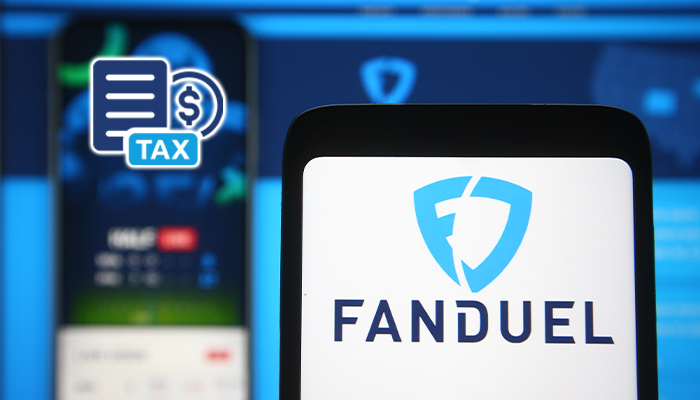Sports Betting Operator Expresses Concerns Over Online Tax Rates

It was recently revealed that a major sports betting operator in the United States has been pleading with legislators to halt tax rate increases on online gaming. According to reports, FanDuel officials spoke out at a recent legislative conference where they expressed their concerns about online tax rate increases and how it would affect operators’ chances of survival within the industry.
The National Council of Legislators from Gaming States conference, where operators spoke out, was held recently in Pittsburgh. FanDuel officials said that the sports betting industry was a ‘thin margin’ one and that operators would struggle to survive if tax rates were increased in a bid to boost revenues.
Cesar Fernandez, FanDuel’s head of state government relations, said,
The plea that I have today is to take a step back and say at what point does the model break? Is there a breaking point where the cost structure of these companies with what is ultimately a relatively thin margin business, can it survive in the long run?
He also added that over-taxing and over-regulating the industry could be a serious threat, stating that the sports betting and gaming industries were treated differently compared to any other industry when it came to taxes.
Sports Betting Industry Hit with Increased
It was also noted that the sports betting industry has been subjected to increases since the overturning of PASPA back in 2018.
Following this move, most states that legalized sports betting followed the lead of New Jersey, where lawmakers had taken the thin margins of the betting industry into consideration when setting tax rates. As such, the state set a tax rate on sports betting of 14.25 percent.
As a result of reasonable tax rates, sports betting operators were able to afford to engage in advertising, promotions, and other moves that helped to stop people from using illegal betting facilities and move over to legalized and regulated ones instead.
Problems arose when the level of advertising by sports betting operators came under fire. Mike DeWine, the governor of Ohio, said that he wanted to reduce the number of ads for sports betting, so he supported a tax rate hike to 20 percent.
On top of this, when New York legalized sports betting, Governor Andrew Cuomo demanded a tax rate of 51 percent. This led to other states reviewing their own tax rates, which were generally far lower than this.
Earlier this year, lawmakers in Illinois set a graduated tax rate on sports betting. The rate stood at 15 percent previously, but it could now go as high as 40 percent for some operators.
Threats to Abandon US Market
Officials said that as a result of states increasing or threatening to increase tax rates on sports betting, there has been talk from some operators about leaving the US market altogether.
Some operators have already announced their decision to withdraw from the market in the United States over recent months. However, this is also thought to be down to stiff competition and the monopoly of the market by two major players, FanDuel and DraftKings.
 by
by